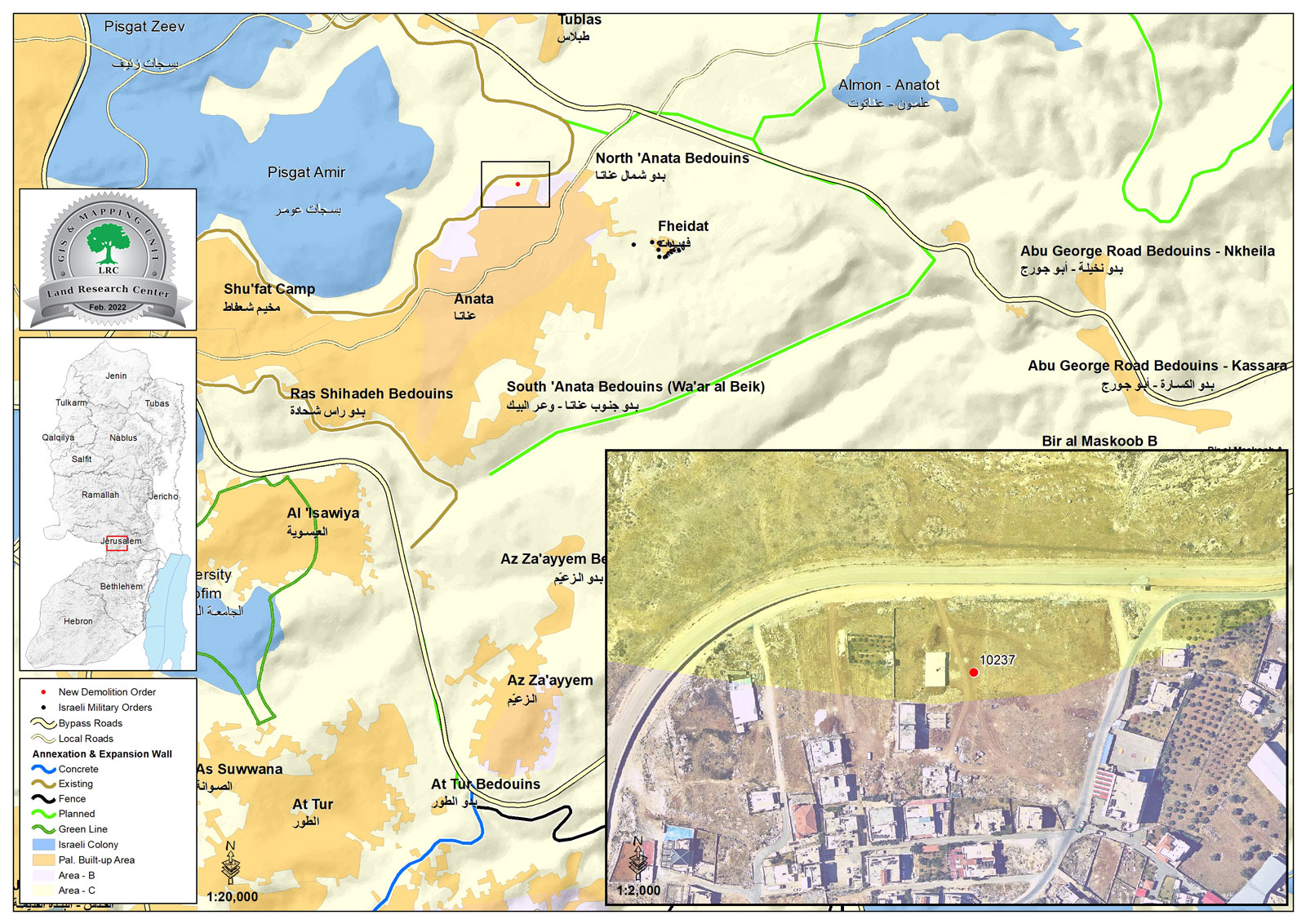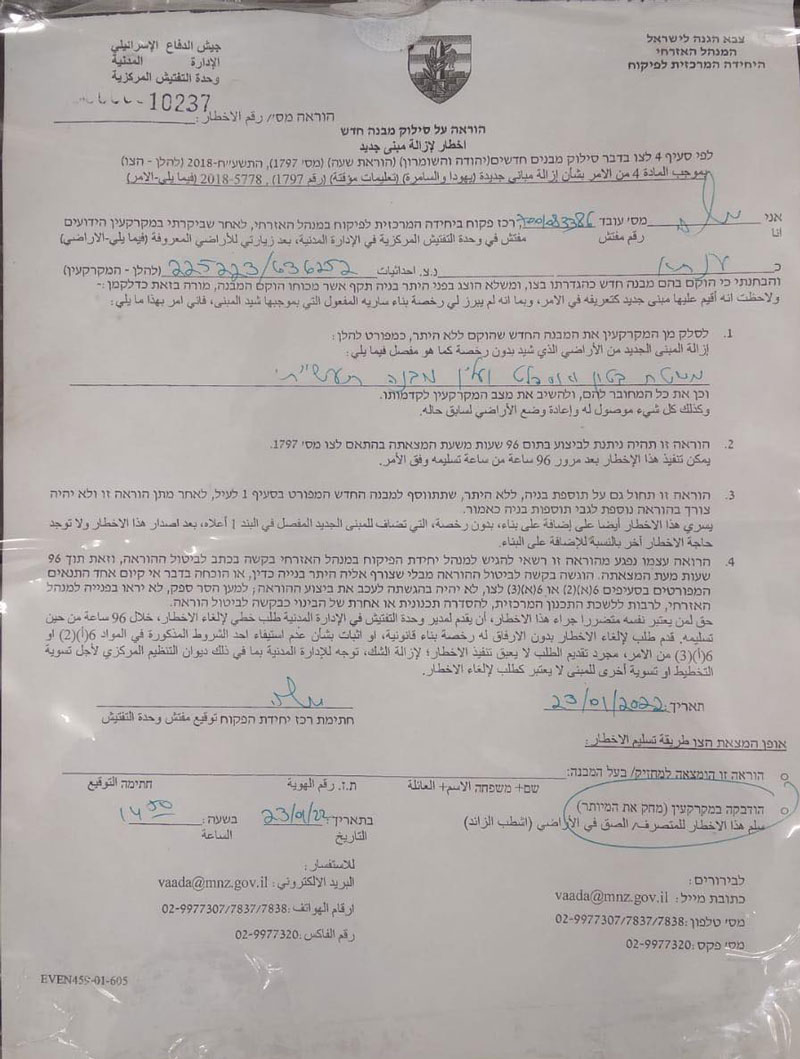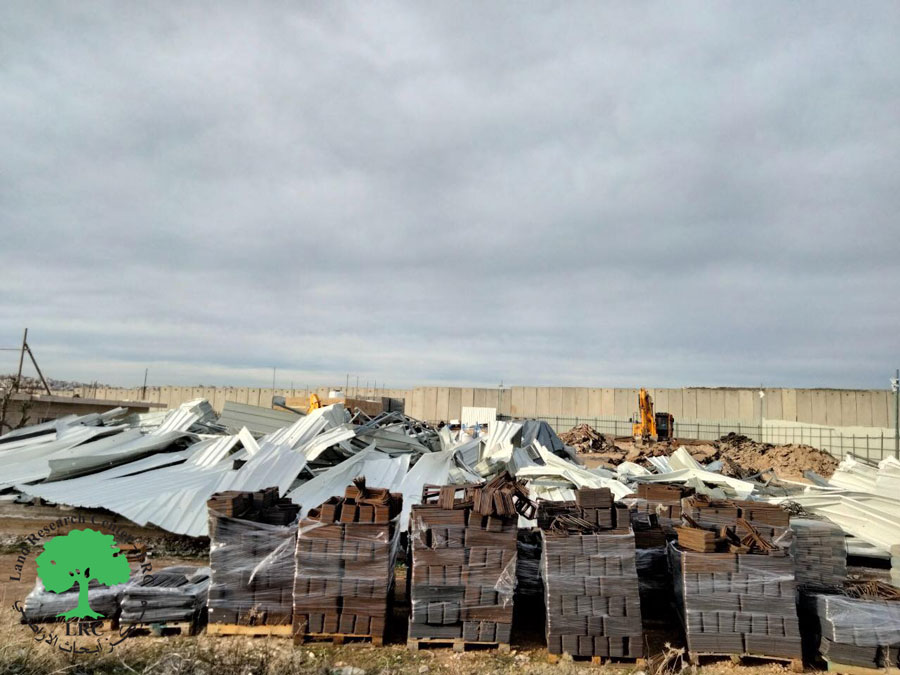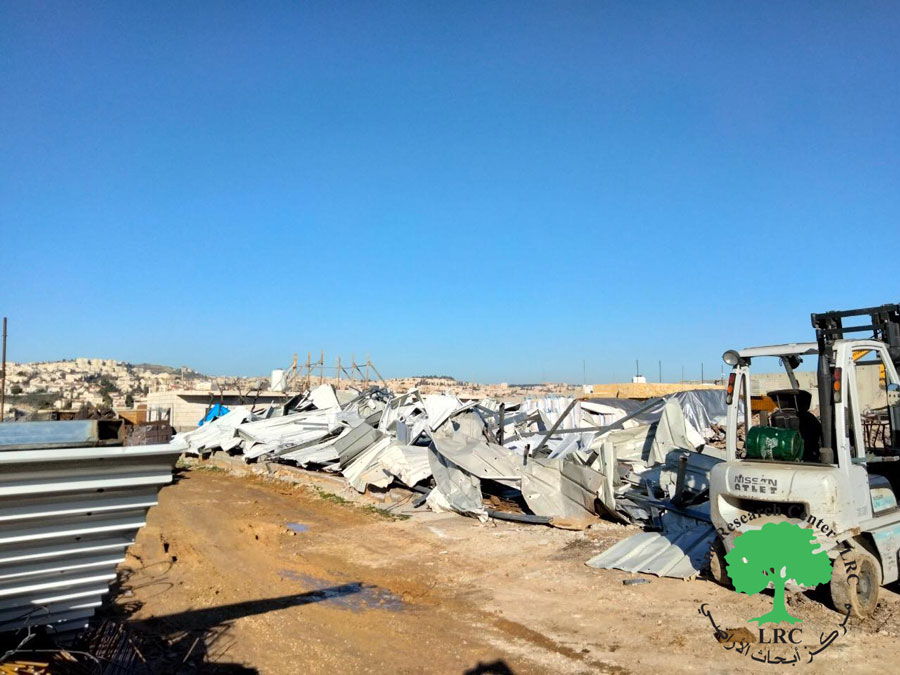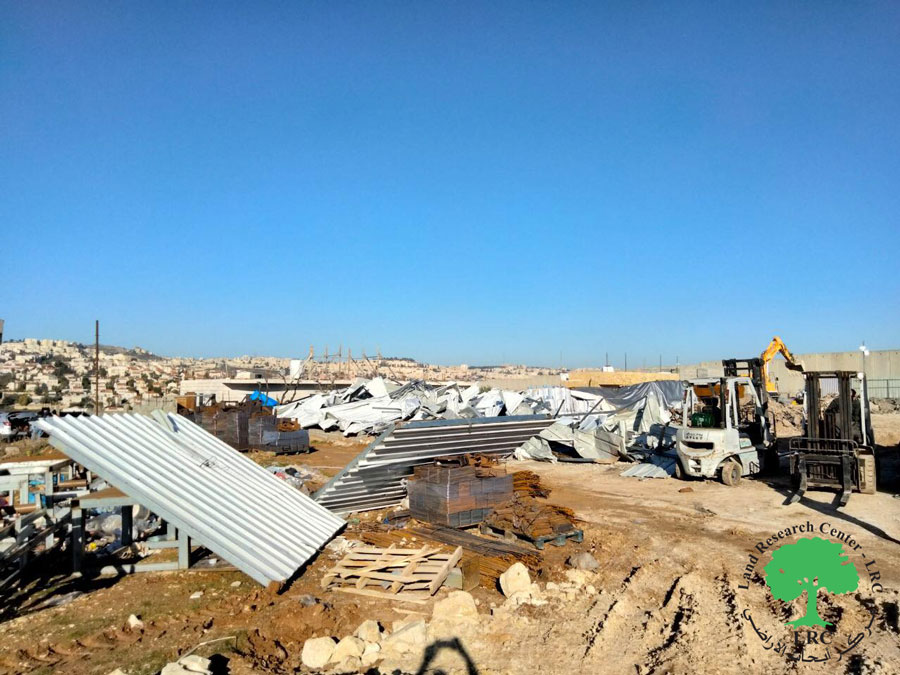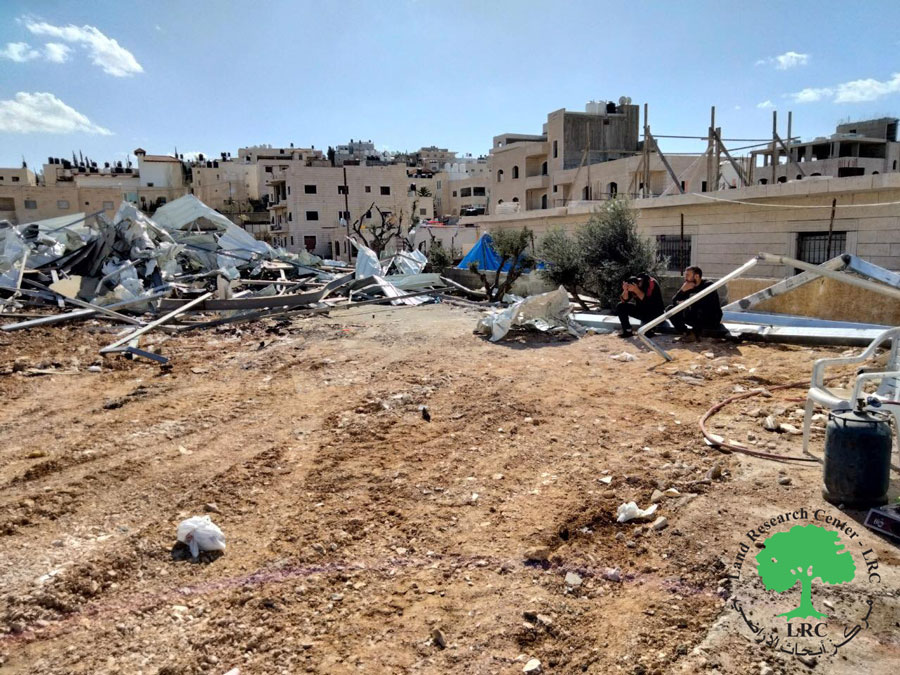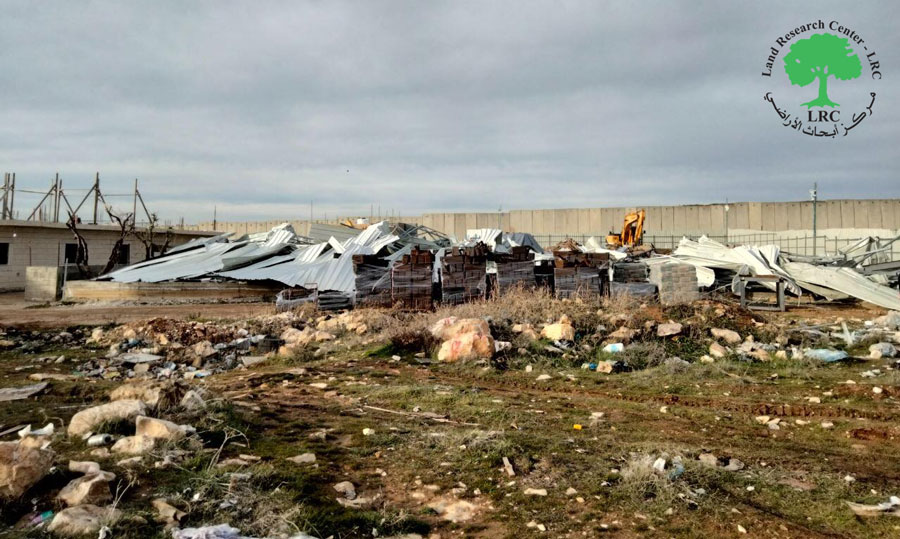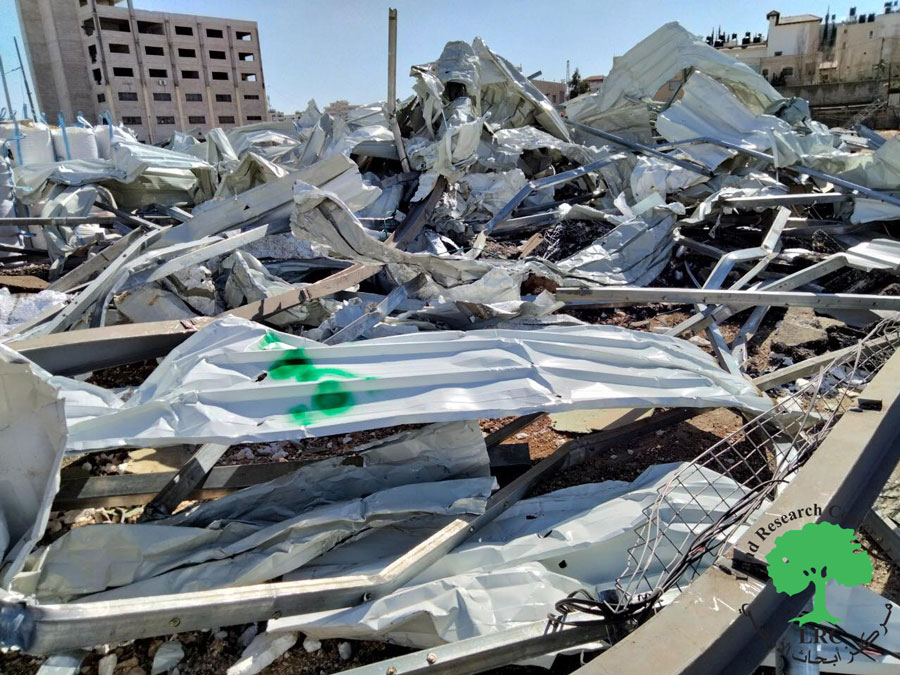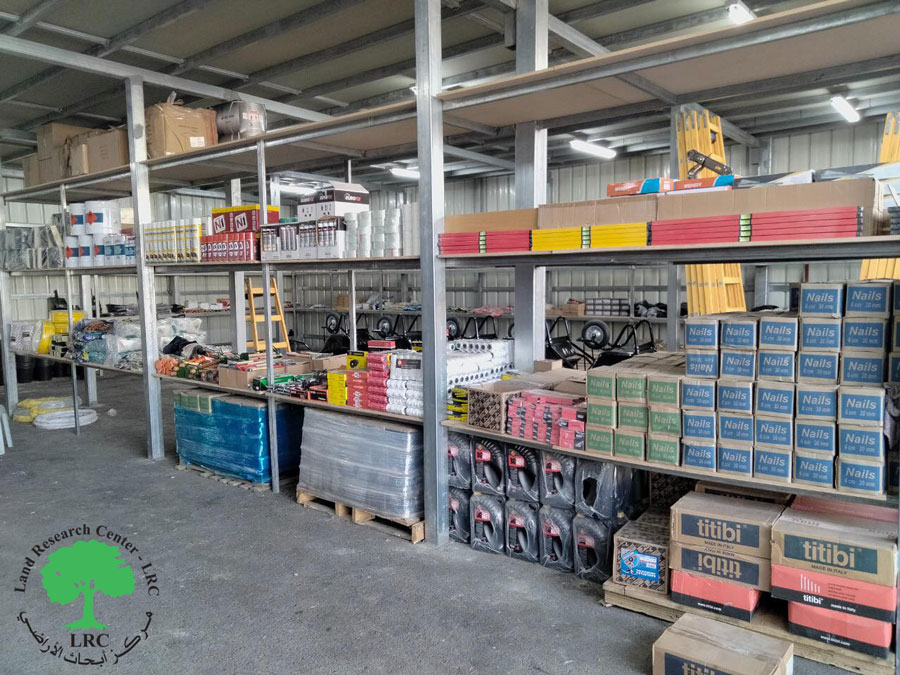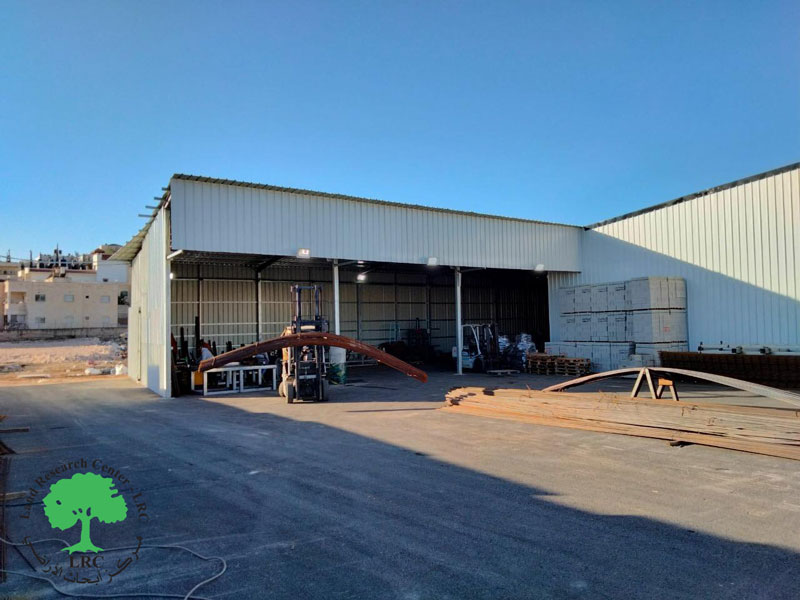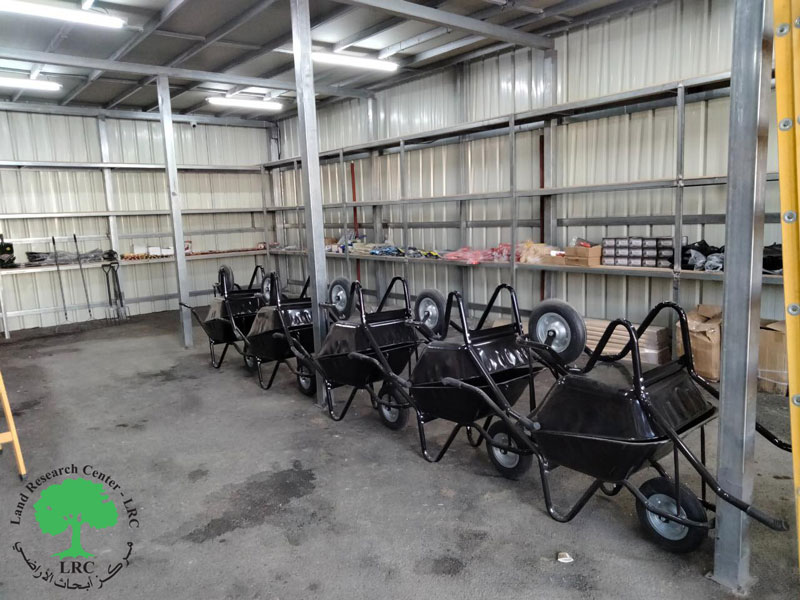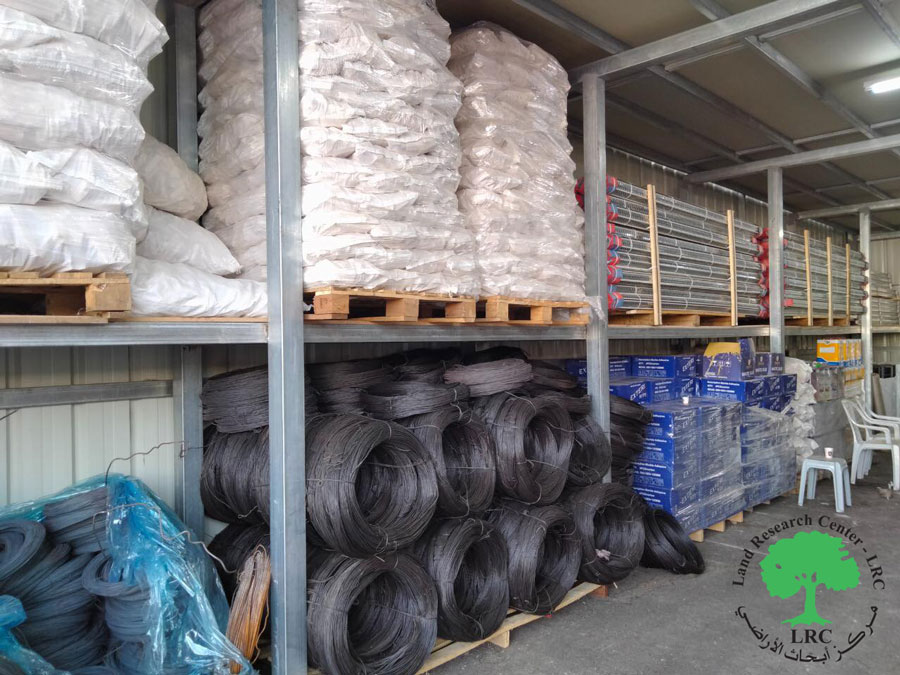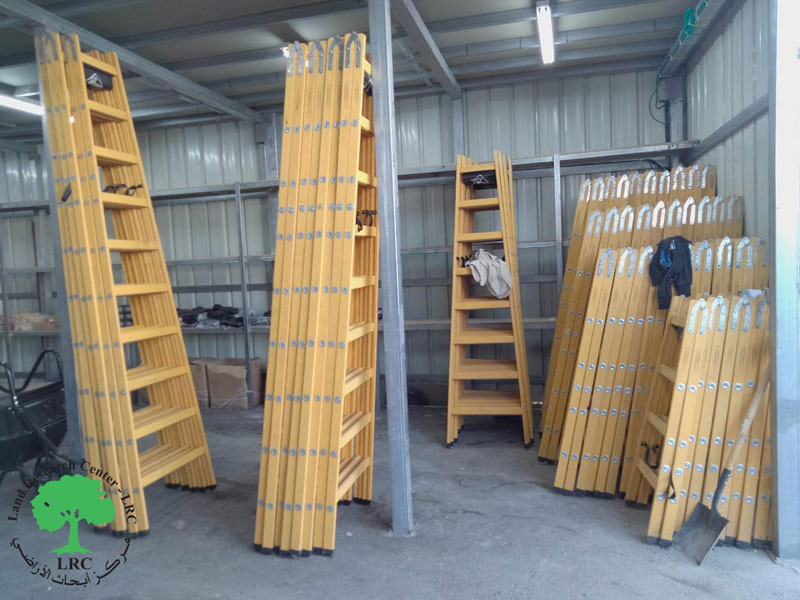2022-02-02
The demolition of the Haddad family’s commercial facility in Anata
On the morning of February 2, 2022, the occupation forces, represented by the Civil Administration in Beit El, stormed a commercial facility in the village of Anata, northeast of occupied Jerusalem, accompanied by bulldozers. The demolition and vandalism of rooms and bars for the Haddad family was carried out under the pretext that the facility is close to the separation wall. Bethel in Jerusalem gave the owner only four days to demolish the structures, but on the second day they stormed the place and demolished it.
The owner of the facility, which his family consists of six, including one daughter, expressed the destruction left by the occupation forces in the place consisting of a 600-square-meter brix, a room, a kitchen and a bathroom, as this facility was used as a shop selling building materials of various kinds. Its owner, Tamer Muhammad Fouad Haddad, built it nearly two months ago, as he incurred huge expenses in construction and in the purchase of building materials intended for trade, so the cost of that amounted to more than 200,000 shekels, about 80,000 dollars, in addition to the great damages that occurred to the place, such as sweeping the asphalt from the entire The ground, and the burning of a crane, worth about 70,000 shekels.
Tamer Haddad mentioned that the workshop was intended for work, trade and livelihood not only for him but also for five families, in addition to the labor force in the place occupied by the owner, and he said that the project was very successful and profitable, as he has great experience in building materials trade and has many customers However, what Bethel did "smashed the dream and inflicted great losses." On the one hand, the occupation completely destroyed the place, thwarted the project, and worked to sabotage and damage many goods through demolition and urgent transportation.
The village of Anata is located in the north-east of the city of Jerusalem and belongs to the Jerusalem governorate. The village's land area is considered one of the largest in Jerusalem, but most of it was confiscated. It is bordered on the north by the village of Hizma, on the south by the village of Al-Isawiya, on the west by Shuafat and Shuafat camp, and on the east by the village of Al-Nabi Musa. The occupation confiscated large parts of Anata’s lands and seized more than 90% of its lands, and established five settlements on them, in addition to building the apartheid wall around it from all sides, and it became with only two entrances, one of which has a military checkpoint, leading to the city of Jerusalem. Possesses a Jerusalem ID or entry permit, and transits to it with conditions. The other entrance with an iron gate is closed by the decision of the occupier.
|
| |
|
| |
|
|
About Anatah:[1]
About 10 km north east Jerusalem, Anatah is surrounded by Hizma (north), Shufat (west) , Al'Eizariya and Jericho (east) Al'Isawiya (south). Anatah has a population of (16,919) people in 2017 census. The Israeli illegal occupation confiscated about (5727) dunums for the following purposes:
Settlements:
Name of the settlement
|
Year of establishing
|
Area of confiscated lands
|
Settlers number
|
Allon
|
1990
|
413
|
38,992
|
Kfar Adummim
|
1979
|
817
|
1,866
|
Neve Brat
|
1992
|
850
|
unavailable
|
Almon-Anatot
|
1983
|
787
|
726
|
Bypass roads (1 , 437 , 485) confiscated (1,301) dunums.
The apartheid wall took over (341) dunums , and isolated (506) dunums , and in case it was completed according to the revealed plan it will isolate (16 ,026)dunums.
Military camps confiscated (1,317) dunums.
According to Oslo convention the land is divided to 2 parts:
- Area B : (902) dunums.
- Area C: (23,124) dunums.
Legal Commentary:
The demolition of Palestinian homes and structures by the occupation authorities is part of their violations of international and humanitarian law, and the violation of the right to adequate housing for Palestinian citizens guaranteed by international law and international treaties presented by the following articles:
The Fourth Geneva Convention, Article 147, stipulates that “extensive destruction and appropriation of property, not justified by military necessity and carried out unlawfully and wantonly” is a “grave breach” of the Convention.
Article 53 of the Fourth Geneva Convention of 1948 prohibits the destruction of property, as this article states the following: “The occupying power is prohibited from destroying any private, fixed or movable property related to individuals or groups, the state or public authorities, or social or cooperative organizations, unless the war operations inevitably require this destruction.
Article 33 of the Fourth Geneva Convention states: “No protected person may be punished for an offense he or she has not personally committed.
Paragraph ‘g’ of Article 23 of the Hague Convention of 1907 AD also warned against destroying or seizing the enemy’s property, unless the necessities of war necessarily require such destruction or seizure.
[1] GIS-LRC
